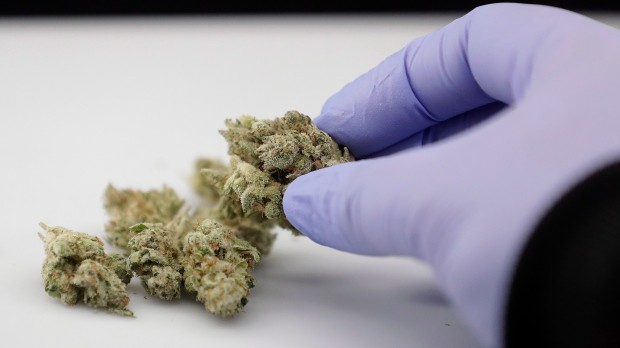Hello there! Have you ever wondered about the journey Canada has taken when it comes to cannabis? Well, get ready to join me on a fascinating exploration of Canada’s Cannabis Chronicles: A Journey Through Stigma and Acceptance. In this article, we will delve into the history and evolution of cannabis in Canada, uncovering the societal stigma surrounding it and how it has gradually transformed into acceptance. So, buckle up and let’s embark on this enlightening adventure together!

Overview of Canada’s Cannabis Legalization
Canada’s journey towards cannabis legalization has been a long and complex one, characterized by changing societal perceptions and the overcoming of deeply ingrained stigmas. In this article, I will take you through the historical background of cannabis prohibition in Canada, the legalization of medical cannabis, and the introduction of the landmark Cannabis Act.
Historical background
For decades, cannabis has been stigmatized as an illegal drug in Canada. The Controlled Drugs and Substances Act, enacted in 1996, classified marijuana as a Schedule II substance, making possession, cultivation, and distribution punishable offenses. This classification perpetuated the negative perception of cannabis and hindered any meaningful discussion on its potential benefits.
Legalization of medical cannabis
The tides began to turn when the Marihuana Medical Access Regulations (MMAR) were introduced in 2001, allowing individuals access to medical cannabis with a doctor’s authorization. This marked the first step towards recognizing the therapeutic potential of cannabis and challenging the deeply ingrained stigma surrounding the plant.
Introduction of the Cannabis Act
In 2018, Canada took a historic leap forward with the enactment of the Cannabis Act, which legalized the recreational use of cannabis nationwide. This groundbreaking legislation aimed to regulate and control the production, distribution, and consumption of cannabis, while prioritizing public health and safety.
The Stigma Surrounding Cannabis
Perception of cannabis as an illegal drug
For many years, stigma surrounding cannabis has been fueled by its status as an illegal drug. The association between marijuana use and criminal activity perpetuated negative stereotypes, effectively demonizing the plant and those who used it.
Cultural and societal stigma
Cannabis also carried a cultural stigma, particularly within conservative circles, where it was seen as a gateway drug leading to addiction and other illicit activities. The lack of scientific research and reliable information further contributed to this stigma, perpetuating fear and ignorance.
Fear of addiction and negative health effects
Another factor contributing to the stigma surrounding cannabis was the fear of addiction and negative health effects. The belief that cannabis use leads to dependency and long-term physical and mental health problems discouraged individuals from exploring its potential therapeutic benefits.
Medical Cannabis and Changing Perspectives
Emergence of medical cannabis research
As research on the medical benefits of cannabis began to emerge, it challenged the prevailing beliefs and opened up new possibilities for treatment. Studies highlighted its potential in alleviating pain, reducing seizures, and aiding in various other medical conditions.
Shift in public opinion on medical use
With increasing scientific evidence and personal anecdotes from patients, public opinion on medical cannabis began to shift. People began to see the plant’s potential as a viable alternative to traditional medications, sparking discussions on the need for wider access to medical cannabis.
Evidence-based benefits of medical cannabis in treating various conditions
The proliferation of scientific studies has provided substantial evidence supporting the efficacy of medical cannabis in treating various conditions. From chronic pain management to alleviating symptoms of multiple sclerosis and epilepsy, cannabis has shown promise as an alternative therapy with minimal side effects.
Path to Legalization: Policy and Regulation
Development of cannabis-related policies
The road to legalization involved the development of comprehensive policies and regulations to ensure the responsible and safe use of cannabis. These policies aimed to establish rigorous quality control standards, regulate production and distribution, and set age restrictions for consumer access.
Creation of a regulated market
Legalizing cannabis required the creation of a regulated market, which involved licensing authorized producers, establishing retail channels, and implementing measures to prevent illegal distribution and consumption. This allowed for greater oversight and control, reducing the risks associated with the illicit market.
Implementation of licensing and taxation systems
To ensure the viability and sustainability of the cannabis industry, Canada implemented licensing systems for producers and retailers, generating much-needed revenue for the government. Taxation on cannabis sales has also helped fund initiatives focusing on education, prevention, and other areas related to cannabis use.

Economic Impact of Cannabis Legalization
Job creation and business opportunities
Cannabis legalization has had a significant economic impact, creating thousands of jobs across various sectors. From cultivation and processing to marketing and retail, the cannabis industry has provided opportunities for entrepreneurs and delivered a much-needed boost to local economies.
Tax revenue generation
The cannabis industry has become a significant source of tax revenue for the government. Taxes levied on cannabis sales, both medical and recreational, have contributed to public coffers and funded initiatives such as education campaigns, addiction treatment programs, and public health initiatives.
Growth of the cannabis industry
Legalization has paved the way for the growth of a regulated cannabis industry, stimulating innovation and entrepreneurship. From product development and cultivation techniques to scientific research and technological advancements, the industry has flourished, attracting investment and generating economic prosperity.


Social Implications and Public Health Considerations
Educational campaigns and public awareness
Alongside legalization, educational campaigns and public awareness initiatives have been crucial in addressing the lingering stigma surrounding cannabis. These efforts have aimed to provide accurate information, promote responsible use, and dispel myths and misconceptions.
Safety concerns and regulations
Legalization has necessitated the implementation of safety regulations to mitigate potential risks associated with cannabis use. Measures such as packaging and labeling standards, dosage limitations, and impaired driving laws seek to protect public health and ensure the responsible consumption of cannabis.
Impact on mental health and addiction
The legalization of cannabis has sparked discussions around its impact on mental health and addiction. While some argue that cannabis use may exacerbate mental health issues and lead to dependency, others believe that responsible consumption can be part of a holistic approach to wellness. Ongoing research is crucial to further understand the potential risks and benefits.
Cannabis Tourism: A Boon or Bane?
Emergence of cannabis tourism
With the legalization of cannabis, Canada has witnessed the emergence of cannabis tourism, attracting visitors from around the world. From cannabis-friendly accommodations to guided tours of cultivation facilities, this form of tourism presents opportunities for economic growth and increased visitation.
Economic benefits and challenges
Cannabis tourism has the potential to stimulate local economies, generate jobs, and attract a new segment of travelers. However, it also presents challenges related to regulation, public safety, and balancing the interests of different stakeholders. Striking a balance between economic benefits and responsible tourism practices is crucial.
Legal and ethical considerations
Cannabis tourism raises legal and ethical considerations, particularly for international tourists. Understanding the varying regulations and restrictions on cannabis consumption within different regions of the country is vital to ensure compliance with the law and respect for local customs.
Impacts on Indigenous Communities
Historical relationship with cannabis
Cannabis holds cultural significance for many Indigenous communities in Canada. Traditional uses of cannabis for spiritual, ceremonial, and medicinal purposes have been part of Indigenous cultures for centuries, shaping their understanding and relationship with the plant.
Cultural perspectives and traditional use
The legalization of cannabis has brought forth an opportunity to engage Indigenous communities in the regulated market. Acknowledging and respecting Indigenous knowledge, practices, and cultural perspectives on cannabis is crucial to ensure their inclusion and participation in the industry.
Engagement of Indigenous communities in the cannabis industry
Indigenous communities have actively sought involvement in the cannabis industry, viewing it as a means of economic empowerment, healthcare sovereignty, and the preservation of cultural practices. Collaborative partnerships between Indigenous and non-Indigenous stakeholders are vital in building a socially and economically sustainable cannabis industry.
International Influence and Global Perspectives
Canada’s role in shaping global cannabis policies
Canada’s decision to legalize cannabis has had a profound impact on the global stage, prompting discussions and debates on cannabis policies worldwide. The country’s progressive approach has provided a model for other nations grappling with the complexities of cannabis legalization.
International response to Canada’s legalization
Canada’s legalization of cannabis has been met with both support and skepticism at the international level. While some countries have taken inspiration from Canada’s approach, others continue to maintain strict prohibitionist policies, reflecting divergent perspectives on the benefits and risks associated with cannabis.
Comparative analysis of cannabis regulations worldwide
Analyzing cannabis regulations worldwide provides valuable insights into various approaches to cannabis legalization. From complete prohibition to fully regulated markets, each country’s regulatory framework reflects its unique cultural, social, and political context.
Conclusion: Canada’s Journey from Stigma to Acceptance
Canada’s cannabis legalization journey has been transformative, challenging long-held stigmas and sparking a nationwide conversation. Through the legalization of medical and recreational cannabis, Canada has made significant strides towards destigmatizing the plant and recognizing its potential therapeutic benefits.
While progress has undoubtedly been made, there remain ongoing challenges and areas for improvement. Continued research, education, and public awareness initiatives are needed to ensure responsible use, address potential health risks, and mitigate the impact on vulnerable populations.
Canada’s cannabis legalization has left a lasting legacy, not just within its borders but internationally as well. The journey from stigma to acceptance has opened the door to new economic opportunities, advancements in medical research, and a more enlightened understanding of the potential benefits and risks associated with cannabis use.
As we continue to navigate the complexities of cannabis legalization, it is essential to prioritize evidence-based policies, meaningful stakeholder engagement, and ongoing dialogue to ensure that Canada’s cannabis journey continues on a path towards inclusivity, social responsibility, and positive outcomes for all.
Recent Posts
Discover how bubble hash is rated on a 1 to 6 scale. From texture and color to aroma and potency, learn the key factors that determine the quality of bubble hash. Whether you're a seasoned cannabis...
Looking to learn about the most popular style of hash? This article explores the different types, from traditional to bubble hash, and reveals the people's favorite. Join us on a journey through the...

